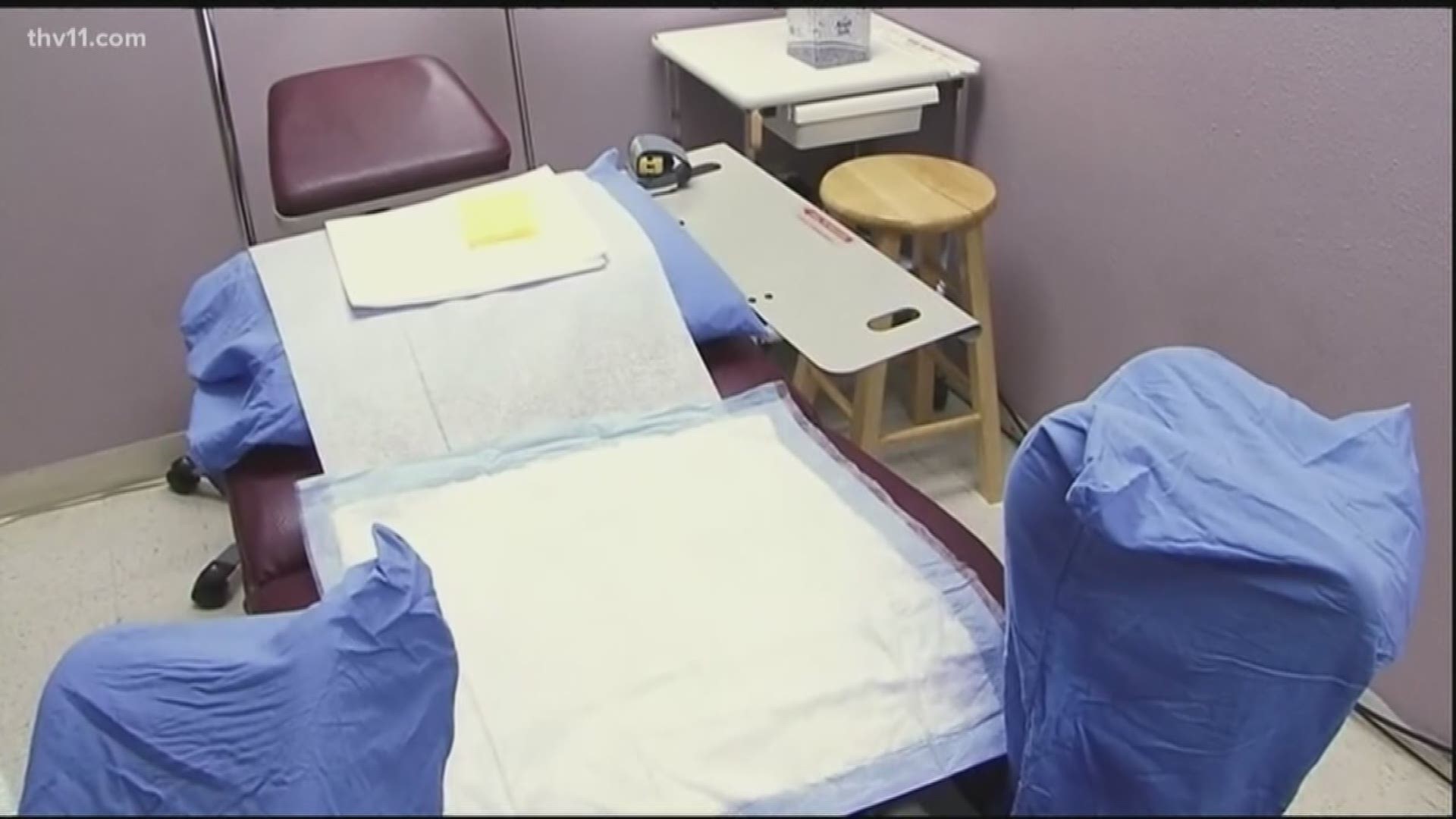Abortion laws are rapidly changing across the country as states like Georgia and Alabama enact some of the strictest regulations to date.
Alabama Gov. Kay Ivey on Wednesday signed into law a controversial abortion bill that could punish doctors who perform abortions with life in prison. The law only allows exceptions to health risks to the mother or if the unborn child has a lethal anomaly. Georgia's Gov. Brian Kemp signed a bill that would make performing an abortion illegal once a heartbeat is detected. That new law takes effect January 1.
"These bans are just that. They're bans. It's an attempt to block women from accessing healthcare,” Gloria Pedro said.
Pedro is the manager of Public Policy at Planned Parenthood in Little Rock. She said these new bans are a threat to women’s healthcare.
"But Planned Parenthood is ever vigilant and ever prepared and is going to be here for patients no matter what, but we're ready and we're not going anywhere,” she said.
Arkansas also just recently placed tighter restrictions on abortions. Currently, abortion is banned after 20 weeks. However, Gov. Asa Hutchinson just signed a bill into law that restricts abortions after 18 weeks. It goes into effect late July, but exceptions will be made in cases of medical emergency, rape or incest.
"We believe that life begins at conception and we want to protect life from natural conception till death,” Ken Yang said.
Yang is the director of Governmental Affairs at Family Council. He said the organization backed the new abortion restrictions this legislative session.
"We calculated, if all of them become law then we'd save an additional 600 babies and that's just good news, any unborn baby that can be saved is good news for all Arkansans,” Yang said.
Arkansas also passed a "trigger" law this legislative session — it would automatically make abortion illegal in the state if Roe v. Wade is overturned. Five other states also have trigger laws; Louisiana, Kentucky, North Dakota, South Dakota and Mississippi.
"If Roe V. Wade does get overturned, we want to make sure states have the right to determine what kind of policies they want to set and that's exactly what the trigger bill that Senator Rapert sponsored does,” Yang said.
"This is a very coordinated attack on women's healthcare. It's not that this is happening randomly, this is organized to challenge Roe V. Wade,” Pedro said.

